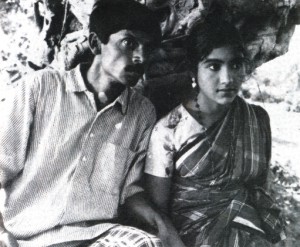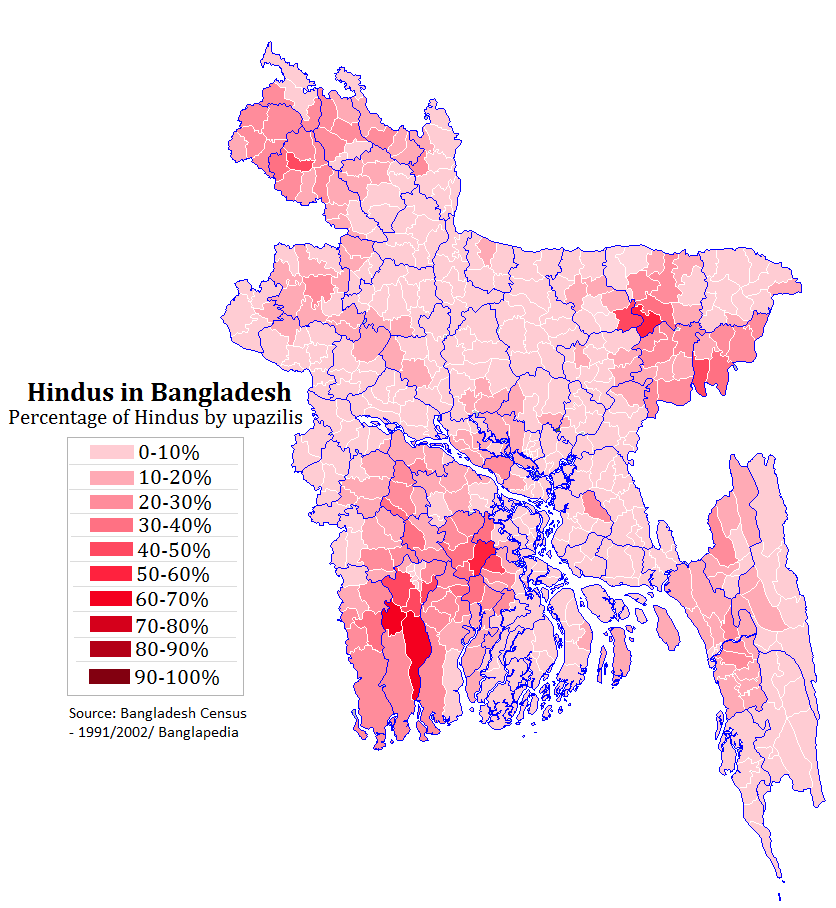|
Subhash Dutta
Subhash Dutta (9 February 1930 – 16 November 2012) was a Bangladeshi filmmaker, theater and film actor. He started his career as a commercial artist. Career At the beginning of his career, Dutta worked as a film poster artist. He drew posters for Mukh O Mukhosh (1956), the first Bengali-language movie to be made in East Pakistan (now Bangladesh). He directed his first movie, Sutorang, in 1964. The movie won the second prize at the Frankfurt Festival in 1965. In 1972, he acted with the theatrical group, ''Aranyak Nattyadal''. Awards * Bangladesh National Film Award for Best Director (1976) * Ekushey Padak (1999) * Nigar Award (1962) His movie ''Abirbhab'' won a prestigious award in Frankfurt Film Festival. His directed movies were awarded in Phnom Penh Film Festival (1968), Moscow Film Festival (1967, 1973, 1979). He also got award for his acting by Pakistan Film Festival (1965). Personal life and death Dutta had two sons, Shivaji and Ranaji, and two daughters, Shilpi and Sh ... [...More Info...] [...Related Items...] OR: [Wikipedia] [Google] [Baidu] |
Sutorang
''Sutorang'' is a 1964 Bengali-language film directed by Subhash Dutta. Dutta played the male lead role as well. Actress Kabori Sarwar made her debut in this film. The film won the second prize in Frankfurt Asia Film in 1964. Ferdausi Rahman sang the song titled ''"Poraney Dola Dilo Ekhon Bhromora"'', composed by Satya Saha and Aliya Sharafi sang ''"Emon Moja Hoi Na"''. Film critic Ahmed Muztaba Zamal, when asked by ''Cinemaya ''Cinemaya'' (a blend of ''cinema'' and ''maya'' (illusion)) is a film magazine established in 1988 devoted exclusively to coverage of Asian film. It is published in New Delhi, India and distributed internationally. The present editor-in-chief of ...'' in 2000 to name the top ten films from Bangladesh, named ''Sutorang'', made when the country was still East Pakistan, as one of the top twelve. References External links * 1964 films Bengali-language Pakistani films Films directed by Subhash Dutta 1960s Bengali-language films {{Bangladesh ... [...More Info...] [...Related Items...] OR: [Wikipedia] [Google] [Baidu] |
Harano Din
''Harano Din'' ( bn, হারানো দিন; English: The Lost Days) is a 1961 East Pakistani Bengali-language film directed by Mustafiz and starring Shabnam and Ghulam Mustafa in the lead roles. Mustafiz's brother Ehtesham produced the movie. Ferdousi Rahman crooned the evergreen hit song "Ami Rupnagarer Rajkanya", composed by Robin Ghosh. Story Mala is a snake charmer's daughter. Rich landlord Bashir Chowdhury has his evil eyes on her. He tried to rape her, but Mala escapes. Cast * Shabnam as Mala (snake charmer's daughter) * Rahman as Bashur Chowdhury * Subhash Dutta Music The film's music was composed by Robin Ghosh Robin Ghosh ( bn, রবিন ঘোষ, ur, ; 13 September 1939 – 13 February 2016) was a Pakistani-Bangladeshi playback singer and film music composer, best known for singing and composing music for Lollywood films from 1961 to 1986. Pla .... References Further reading * External links * 1961 films Bengali-language Pakistani film ... [...More Info...] [...Related Items...] OR: [Wikipedia] [Google] [Baidu] |
Bangladeshi Hindus
Hinduism is the second largest religious affiliation in People's Republic of Bangladesh, as according to the Official 2022 Census of Bangladesh, approximately just 13.1 million people responded that they were Hindus, constituting 7.95% out of the total population of 165.15 million people. In terms of population, Bangladesh is the third-largest Hindu populated country of the world, just after India and Nepal. Hinduism is the second-largest religion in 61 out of 64 districts of Bangladesh, but there is no Hindu majority district in Bangladesh. Culture In nature, Bangladeshi Hinduism closely resembles the forms and customs of Hinduism practiced in the neighboring Indian state of West Bengal, with which Bangladesh (at one time known as East Bengal) was united until the partition of India in 1947. The vast majority of Hindus in Bangladesh are Bengali Hindus. Goddess (Devi) – usually venerated as Durga or Kali – is widely revered, often alongside her consort Shiva. The wor ... [...More Info...] [...Related Items...] OR: [Wikipedia] [Google] [Baidu] |
Bangladeshi Film Directors
Bangladeshis ( bn, বাংলাদেশী ) are the citizens of Bangladesh, a South Asian country centered on the transnational historical region of Bengal along the eponymous bay. Bangladeshi citizenship was formed in 1971, when the permanent residents of the former East Pakistan were transformed into citizens of a new republic. Bangladesh is the world's eighth most populous nation. The vast majority of Bangladeshis are ethnolingustically Bengalis, an Indo-Aryan people. The population of Bangladesh is concentrated in the fertile Bengal delta, which has been the center of urban and agrarian civilizations for millennia. The country's highlands, including the Chittagong Hill Tracts and parts of the Sylhet Division, are home to various tribal minorities. Bengali Muslims are the predominant ethnoreligious group of Bangladesh with a population of 150.36 million, which makes up 91.04% of the country's population as of 2022. The minority Bengali Hindu population made up appr ... [...More Info...] [...Related Items...] OR: [Wikipedia] [Google] [Baidu] |
Bangladeshi Male Film Actors
Bangladeshis ( bn, বাংলাদেশী ) are the citizens of Bangladesh, a South Asian country centered on the transnational historical region of Bengal along the eponymous bay. Bangladeshi citizenship was formed in 1971, when the permanent residents of the former East Pakistan were transformed into citizens of a new republic. Bangladesh is the world's eighth most populous nation. The vast majority of Bangladeshis are ethnolingustically Bengalis, an Indo-Aryan people. The population of Bangladesh is concentrated in the fertile Bengal delta, which has been the center of urban and agrarian civilizations for millennia. The country's highlands, including the Chittagong Hill Tracts and parts of the Sylhet Division, are home to various tribal minorities. Bengali Muslims are the predominant ethnoreligious group of Bangladesh with a population of 150.36 million, which makes up 91.04% of the country's population as of 2022. The minority Bengali Hindu population made up appr ... [...More Info...] [...Related Items...] OR: [Wikipedia] [Google] [Baidu] |
People From Dinajpur District, Bangladesh
A person ( : people) is a being that has certain capacities or attributes such as reason, morality, consciousness or self-consciousness, and being a part of a culturally established form of social relations such as kinship, ownership of property, or legal responsibility. The defining features of personhood and, consequently, what makes a person count as a person, differ widely among cultures and contexts. In addition to the question of personhood, of what makes a being count as a person to begin with, there are further questions about personal identity and self: both about what makes any particular person that particular person instead of another, and about what makes a person at one time the same person as they were or will be at another time despite any intervening changes. The plural form "people" is often used to refer to an entire nation or ethnic group (as in "a people"), and this was the original meaning of the word; it subsequently acquired its use as a plural form of ... [...More Info...] [...Related Items...] OR: [Wikipedia] [Google] [Baidu] |
1930 Births
Year 193 ( CXCIII) was a common year starting on Monday (link will display the full calendar) of the Julian calendar. At the time, it was known as the Year of the Consulship of Sosius and Ericius (or, less frequently, year 946 '' Ab urbe condita''). The denomination 193 for this year has been used since the early medieval period, when the Anno Domini calendar era became the prevalent method in Europe for naming years. Events By place Roman Empire * January 1 – Year of the Five Emperors: The Roman Senate chooses Publius Helvius Pertinax, against his will, to succeed the late Commodus as Emperor. Pertinax is forced to reorganize the handling of finances, which were wrecked under Commodus, to reestablish discipline in the Roman army, and to suspend the food programs established by Trajan, provoking the ire of the Praetorian Guard. * March 28 – Pertinax is assassinated by members of the Praetorian Guard, who storm the imperial palace. The Empire is auctioned o ... [...More Info...] [...Related Items...] OR: [Wikipedia] [Google] [Baidu] |
2012 Deaths
This is a list of deaths of notable people, organised by year. New deaths articles are added to their respective month (e.g., Deaths in ) and then linked here. 2022 2021 2020 2019 2018 2017 2016 2015 2014 2013 2012 2011 2010 2009 2008 2007 2006 2005 2004 2003 2002 2001 2000 1999 1998 1997 1996 1995 1994 1993 1992 1991 1990 1989 1988 1987 See also * Lists of deaths by day The following pages, corresponding to the Gregorian calendar, list the historical events, births, deaths, and holidays and observances of the specified day of the year: Footnotes See also * Leap year * List of calendars * List of non-standard ... * Deaths by year {{DEFAULTSORT:deaths by year ... [...More Info...] [...Related Items...] OR: [Wikipedia] [Google] [Baidu] |
Rupban
''Rupban'' () is a 1965 East Pakistani Bengali-language Bengali ( ), generally known by its endonym Bangla (, ), is an Indo-Aryan language native to the Bengal region of South Asia. It is the official, national, and most widely spoken language of Bangladesh and the second most widely spoken of t ... black-and-white film written and directed by Salahuddin. Actors included Sujata, Mansur, and Chandona. The film had a production budget of Pakistani ₨ 150,000. Description In the early 1960s, the story of Rupban was very popular in Jatras or open-air folk stage dramas. On the other hand, Bengali movies were struggling in box office due to the competition with big-budget Urdu and Hindi films. Director Salahuddin, who directed 3 Bengali films previously, used the popularity of the Rupban story to revive the market of Bengali films. He watched the Jatra and identified the reasons why it was so popular. And then, he directed the film accordingly. It worked tremendously. The ... [...More Info...] [...Related Items...] OR: [Wikipedia] [Google] [Baidu] |


_1938.jpg)
